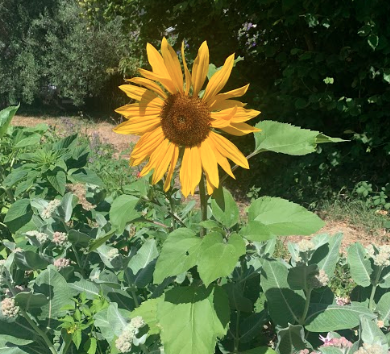
Weeding By Hand
Summary:
In this lesson, students apply what they learned in the previous lesson about biotic interactions to explore the organic farming technique of weeding by hand. When farmers weed, they are removing plants they deem to be in competition with the crops they are intentionally cultivating. First students return to the beds they planted in L2_Cultivation and record their observations. Then they weed the bed, and discuss how weeding impacts the garden ecosystem, the values it represents, and how it helps us consider humans as part of the garden ecosystem. This latter idea is one they will expand upon further in future lessons. Finally, students are introduced to a few techniques for “pest control” and reflect on how they might want to approach this in their own projects.
Download Lesson Plan
Vocabulary:
- Cultivated plant: a plant that is grown intentionally for harvest by humans.
- Weed: a wild plant growing where it is not wanted and in competition with cultivated plants.
- Resource: in science, a resource is defined as a physical material that an organism needs or values, such as air, sunlight, nutrients or water.
- Value: a principle or standard of behavior; one's judgment of what is important in life.
- Pesticide: a substance used for destroying insects or other organisms harmful to cultivated plants or to animals.
- Fungicide: a substance used to prevent the growth of fungi and their spores.
- Herbicide: a substance used to control or manipulate “weeds” or other undesirable plants.
Teaching Notes:
- For sections that instruct students to READ, you can record yourself reading aloud and send it to students. Invite them to read along with the recording. This is a helpful strategy for differentiating learning that supports all students, especially English Language Learners.




